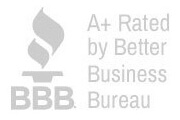What Is the Series LLC Operating Agreement, and Why Is It Important?
The Delaware Series LLC has become increasingly popular amongst “serial entrepreneurs”. This dynamic business structure offers an efficient way to maintain multiple businesses under one entity roof. Delaware law requires Series LLCs to have a private Operating Agreement to govern the company’s internal affairs. Series LLC owners have complete freedom to customize the legal structure of their business through the Series LLC Operating Agreement. This can enable faster growth through limited liability protection.
Series LLCs are easy to set up. However, maintaining a Series LLC and preserving its internal liability shields requires attention to detail. Creating an effective Operating Agreement is key to ensuring the sustainability of a Series LLC.
We cover why the Series LLC Operating Agreement is important plus some of the best practices for creating one.
What Is a Series LLC Operating Agreement?
The Series LLC Operating Agreement is a private contract between the members of a Series LLC and the one or more members associated with each protected series. This is an internal document that is not filed with the state of formation.
The primary function of the Operating Agreement is to establish protected series and order the internal affairs of the company. Some important items listed in the Operating Agreement include:
- Ownership Structure – Details regarding the ownership interest and management responsibilities of each member associated with the company and its protected series.
- Voting Structure- The Series LLC Operating Agreement details the voting rights of each LLC member.
- Amendment Process – The Operating Agreement establishes procedures for undertaking changes in ownership and governance. This includes admitting new members to the LLC, creating new economic interests in the company, and transferring or assigning existing interests.
“Delaware law requires Series LLCs to have a private Operating Agreement to govern the company’s internal affairs.”
Why Is the Series LLC Operating Agreement Important?
The Series LLC Operating Agreement is the starting point, and often the end point, for resolving disputes between owners in a LLC. When considering limited liability protection, business owners typically think about shielding their personal assets from hostile creditors of the business. The truth is that most attacks on a business come from the inside in the form of partner disputes.
Delaware’s dedicated business court, the Court of Chancery, receives over 1,000 civil filings a year which include business divorces and partner disputes. Like a prenuptial agreement, a properly crafted Series LLC Operating Agreement should quell conflict amongst members by providing for fair and fast resolutions to disputes.
“The Operating Agreement is important to preserving the liability shields of protected series in a Series LLC.”
The LLC Operating Agreement can either be written, oral, or implied according to the Delaware LLC Act. This means that if members neglect to draft a concrete Operating Agreement, the company’s fate will be left entirely to the discretion of a judge in the event of a partnership dispute.
In business, a single piece of equipment or a software program can serve as the heart of a business’s operations. For a Series LLC, the Operating Agreement is the veins and beating heart of its legal structure. If the Series LLC Operating Agreement does not function properly, the whole organization becomes vulnerable.
How To Create a Series LLC Operating Agreement
Series LLC experts recommend the following practices when generating an Operating Agreement:
1.) Members of a Series LLC should be listed as members of each protected series.
It is advisable for each protected series to have the same ownership structure of the parent Series LLC. In other words, each member of the Series LLC should be associated with each protected series, and with the same ownership percentage.
Consistent ownership mitigates risk of internal conflict. Just because a member is associated with a particular protected series does not mean they have to be involved in its day to day operations. Each protected series can adopt a Separate Series Agreement which details the management responsibilities of each member pertaining to the particular series.
Each protected series is able to have different members and managers. Members can own interest in the Series LLC without being associated with each protected series therein. Separating members across protected series may seem like an easy way to delegate management duties, however, it is not recommended.
“Each protected series should have the same ownership structure of the parent Series LLC, with the same ownership percentages.”
The goal of the Series LLC is to operate multiple business lines while maintaining consolidated ownership under one legal entity. Diversifying ownership across protected series carries a high risk for internal conflict. Members are vulnerable to becoming jealous of the success of other businesses in the organization if their interest is restricted to just one protected series. Successful protected series also sometimes underwrite costs for developing series, resulting in owners of the successful series becoming upset with management.
Disputes between owners threaten the internal liability shields between each protected series and the Series LLC.
2.) Detailed Procedures For Adopting Amendments.
Members can make changes to the Series LLC Operating Agreement to address the needs of the business as it grows. These changes are achieved through adopting amendments.
It is important to clearly outline necessary provisions for adopting amendments to the Operating Agreement. Members can agree on a voting structure for enacting amendments, whether it be a simple majority, supermajority, or unanimous consent.
Amendments to the Operating Agreement should not impact the waterfall of compensation to owners without their consent. The controlling member’s may breach their “duty of loyalty” by doing so. Other members could consider this to be “self dealing”. A vote should not look like the wolves voting whether to eat the sheep.
Clearly outlining amendment procedures is crucial to preventing internal conflict. Series LLC Operating Agreements are incredibly flexible at the outset. However, once a set of provisions is put in place, the concrete hardens, and they can only be changed through the amendment process. Failing to clearly detail amendment procedures can confuse members, stoke conflict, and ultimately jeopardize the liability shields of each protected series.
3.) Adopt Separate Series Agreements
Each protected series in a Series LLC should have its own internal document called a “Separate Series Agreement”. The Separate Series Agreement should restate the ownership interests plus detail the management responsibilities of each associated member for that particular protected series.
Each Separate Series Agreement should include the name of the protected series and its stated business purpose. For example, to own and manage a particular piece of real estate or to own and manage one product line.
“Each protected series can adopt a Separate Series Agreement which details the management responsibilities of each member pertaining to the particular series.”
Not All Operating Agreements Are the Same
A few incorporation services provide sample Series LLC Operating Agreement templates which companies can fill out and use. These resources may be useful, however, legal professionals may advise against using these types of agreements as the foundation for a business organization. As many as 300 choices may need to be considered before finalizing an Operating Agreement draft. The default choice is often not the best choice.
Benefits of a sound Series LLC Operating Agreement include:
- Reliable, internal liability protection between protected series and the main Series LLC;
- Reduced risk of internal conflict between Series LLC members, and;
- Fast and fair resolution to internal disputes.
A strong Series LLC Operating Agreement functions like a prenuptial agreement enacted in the honeymoon phase of the business. An attorney who has experience dealing with Series LLCs can generate an Operating Agreement tailored to the specific needs of a business and its owners. For example, a Series LLC Operating Agreement should include a dispute resolution process, such as binding arbitration, in compliance with the rules of the American Arbitration Association.
A professionally prepared agreement can account for unforeseen contingencies that can impact a business and mitigate certain types of financial and liability risk.

